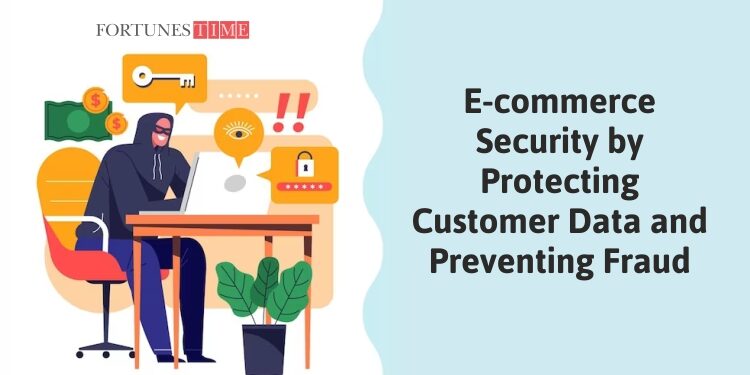In this digital age, the conventional idea of commerce has found its way through e-commerce. And, while the retail sector experiences a record amount of innovation, e-commerce is on the increase.
However, the development of e-commerce as a whole and possibilities it brings with it comes with a significant duty for online shop owners: putting up safety measures and securing important client data to protect both themselves and their consumers. This implies that e-commerce security is a major priority for all online retailers.
E-commerce security is a collection of procedures that enable secure e-commerce transactions, safeguarding consumers’ and businesses’ data from dangers such as phishing attempts, hacking, credit card fraud, data mistakes, or unsecured internet services. Failure to offer a safe atmosphere can not only reduce an e-commerce store’s income, but will also cause its consumers to lose faith.
Regular Security Audits and Updates
Online merchants can help protect themselves toward fraudulent purchases by keeping an eye on their stores for unusual behaviour. Accounts and transactions can be monitored for red flags such as incorrect billing and shipping information and the customer’s actual location. Also, retailers can utilize software tools that track consumer IP numbers and inform them if the addresses reflect nations with a high fraud rate. As a result, frequent surveillance of sites may assist organizations in protecting themselves against potentially suspicious behaviour that could lead to measurable frauds in the future.
Fraud Detection and Prevention Systems
According to statistics, the level of E-commerce fraud is considerable. According to Cybersource, corporations would lose 2.9% of worldwide income to fraud in 2022. Companies lost 3.6% of their worldwide sales in 2021, thus this is an improvement.
Things are improving since the market is expanding and modern solutions to this problem are developing. According to 360iResearch, the worldwide eCommerce fraud detection and prevention industry is valued $47.93 billion. In 2023, the market is expected to be worth $47.93 billion. According to a 20.35% CAGR, the industry might be valued $102.28 billion by 2030.
Crowe UK and the Centre for Counter Fraud Studies (CCFS) developed Europe’s largest comprehensive database of fraud information, comprising data from over 1,300 businesses from nearly every economic sector. According to the surveys, 21% of customers are concerned that their credit card information would be stolen, and 19% are concerned that their sensitive information will be exploited. People reported experiencing illegal or suspicious behavior over the Internet at a higher rate than through mobile spam calls (18%), door-to-door sales (13%), postal mail (12%), or businesses (5%).
According to reports and user surveys, E-commerce enterprises should be aware of the possible hazards of fraud, as well as the tools and solutions to counteract them, so that customers feel more at ease and trusting while making purchases.
Privacy Protection
Whichever techniques and processes you devise, the most essential thing is that the rules be followed. And it all starts with the person in charge of the e-commerce platform. To error is human, so having a robust tool to assist you maintain your platform secure is essential. Many systems ensure that all sensitive data is kept in an encryption hardware service, that all ports are automatically closed, that security fixes and firewalls are immediately implemented to all computers, and that users can create SSL certificates with a single click. All of this while automatic monitoring is in place. Having so many things to do, it may be challenging to manage use to each of your tools and ensure safe deployments, which is where tools come in.
What Lies Ahead?
The global number of ecommerce enterprises is increasing. Because of the current COVID-19 epidemic, the amount of online sales and transactions is particularly high. This development, however, has resulted in an increase in fraudulent operations. As a result, internet firms must employ fraud detection and avoidance software. They should use algorithms based on machine learning that can learn, adapt, and improve over time. Such technologies may detect new fraudulent patterns without the need for human interaction. Also, in order to make their company more safe and dependable for clients, online businesses should follow common security policies and PCI requirements.










